Tankless vs Tank Water Heater: What are the Differences?
Finding the perfect water heater for your home comes down to two options: tank or tankless. We're here to help. Our comprehensive guide factors in cost, maintenance, installation, and longevity of both models to give you the knowledge needed to make an informed decision. Don't hesitate to reach out to us for additional support.

What is a storage tank water heater and how it works?
If you are looking for a reliable and cost-effective way to heat water in your home or business, storage tank water heaters might be the solution for you. These heaters store hot water in a tank and deliver it to your faucet when you need it. With heating elements or burners that raise water temperature to your desired setting and insulation to prevent heat loss, these tried-and-true heaters have been a popular choice for years. Despite the rise in popularity of newer tankless models, storage tank water heaters remain a dependable and affordable option for all your hot water needs.

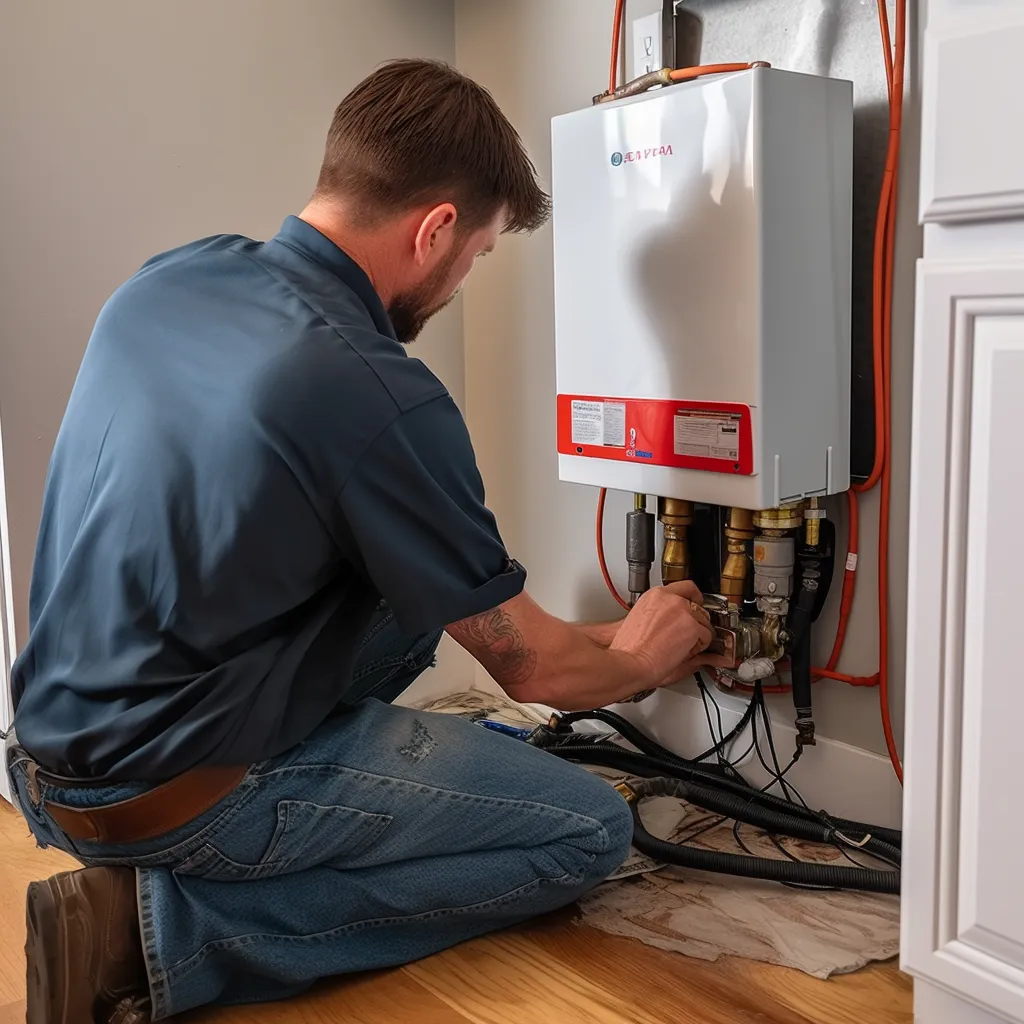
Benefits of a tank water heater
Tank water heaters have several benefits:
Looking for a wallet-friendly way to keep your water heated at home? Look no further than tank water heaters! These budget-friendly appliances are both easy on your wallet.
Tank water heaters are simple to maintain, making them the perfect choice for homeowners who want reliable hot water without breaking the bank.
One of the biggest benefits of tank water heaters is their large storage capacity. While tankless models can run out of hot water quickly, leaving you shivering in the shower, tank water heaters provide a steady flow of hot water for prolonged baths or showers.
Tank water heaters are known for their sturdiness and durability, meaning you can count on your appliance to keep working smoothly for years to come.
With lower maintenance costs than their tankless counterparts, a tank water heater is a smart investment in your home that will save you time, money, and headaches in the long run.

What are the drawbacks of a tank water heater?
Tank water heaters some disadvantages:
They require a lot of space, making them less than ideal for homes with limited space.
Older models are also considered less energy-efficient, leading to higher utility bills.
The tanks tend to last only 8-12 years, while tankless systems can last up to 20 years.
The inconvenience of running out of hot water can be a major hassle, especially for households with high hot water use. It can take several hours to reheat, leaving you without hot water in the meantime.


What is a tankless water heater and how does it work?
Never wait for hot water again with tankless heaters! Unlike traditional models, these units heat water as it flows through, eliminating the need for bulky storage tanks. Simply turn on the hot water, and enjoy instant access to hot water straight from the faucet. As cold water enters the unit, it passes through the heat exchanger and is rapidly heated before dispensing hot water directly into your sink or shower.

What are the benefits of a tankless water heater?
Tankless water heaters are popular with homeowners due to their many benefits:
Looking for a hot water system that's both efficient and convenient? Look no further than tankless water heaters.
With no need to store hot water, these innovative systems save space and deliver an endless supply of hot water on demand.
They're energy-efficient, cutting your utility bills while lasting up to 20 years - much longer than traditional tank systems.

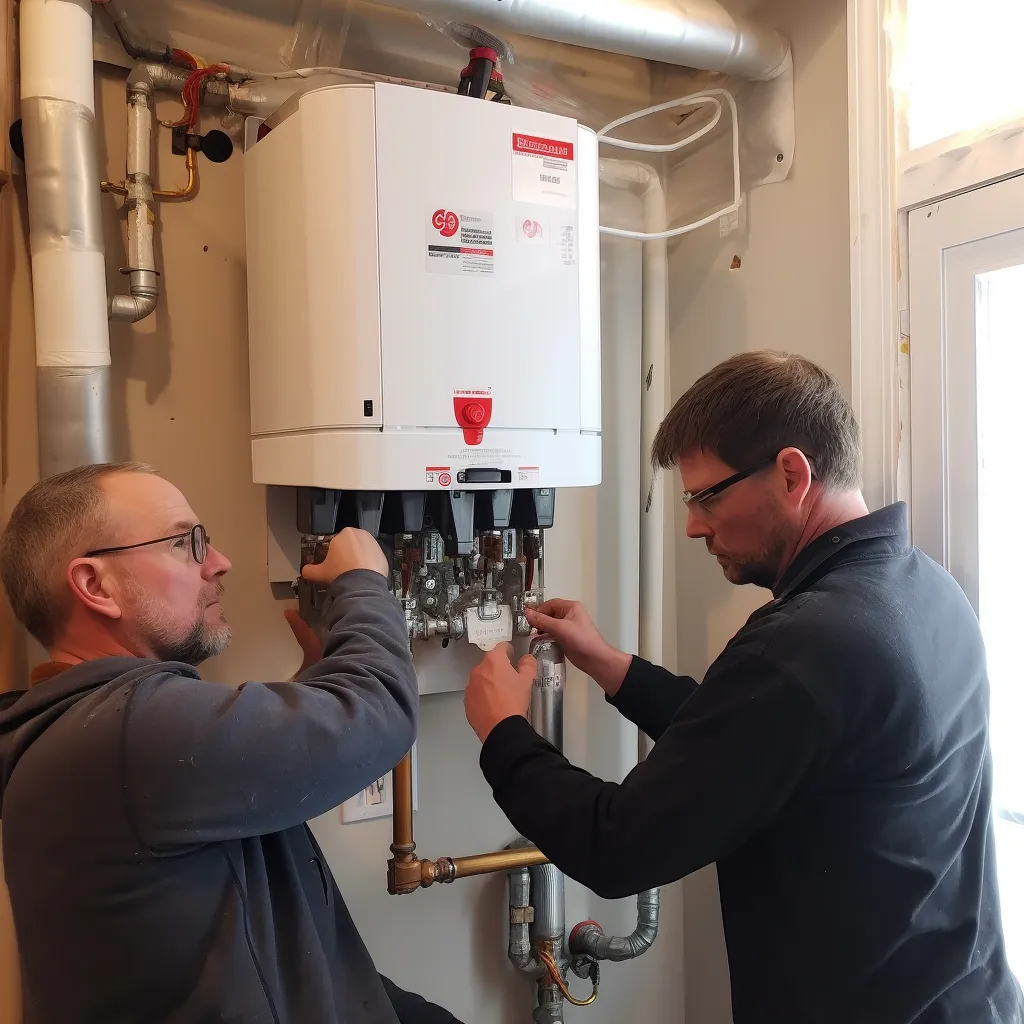
What are the disadvantages of a tankless water heater?
Tankless water heaters have a few downsides:
The upfront costs for purchasing and installing a tankless water heater are typically higher than traditional tank systems.
Maintenance needs may be more frequent, resulting in greater expenses over time.
It's critical to select the right unit for your home's specific requirements to ensure optimal performance and avoid reduced effectiveness at high flow rates or fluctuating temperatures.

Are storage tank water heaters energy-efficient?
Don't let your water heater cost you excess energy and money. Traditional tank models waste energy by constantly heating water, even when you don't need it. But there's good news! Newer tank models are energy-saving champions, with top-notch insulation and heating features. They may not be the greenest option on the market, but they're reliable and practical for many homes. Upgrade your water heater and start saving today!
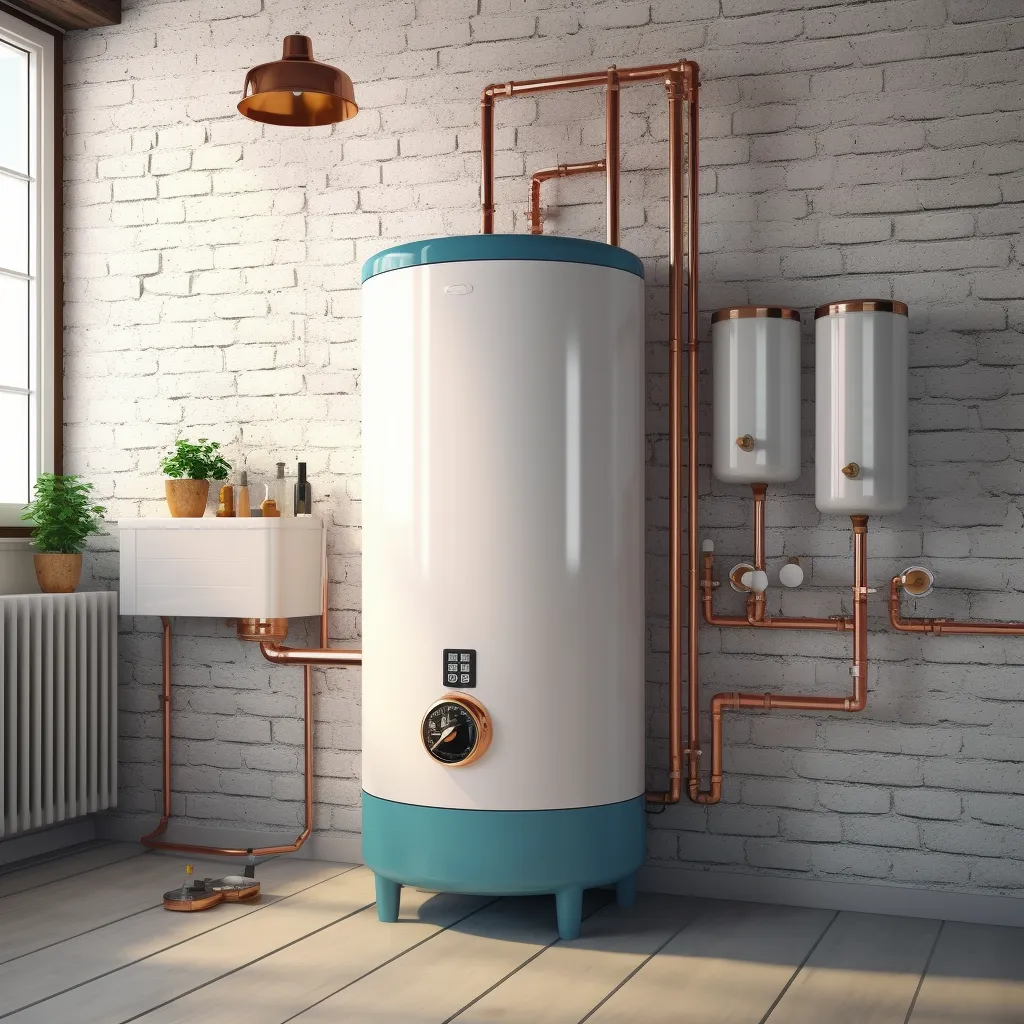
Are tankless water heaters energy-efficient?
Looking for a cost-effective and eco-friendly way to heat your home's water supply? Look no further than tankless water heaters! These modern systems can save you up to 34% on energy costs compared to traditional tank-based systems. By heating water on demand, tankless heaters use less energy and require less maintenance than their bulkier counterparts. Plus, they're built to last, meaning you'll save money in the long run on both repairs and energy bills. Upgrade your home's heating system today with a tankless water heater!

Cost to buy and install
a tank water heater
Get hot water on demand with tank water heaters, but at what cost? Typically priced between $500 and $2,000, choosing a fancier model with extra features could mean a higher expense. Don't forget that installation costs can also reach up to $1,500, depending on plumbing conditions and local labor rates. Plus, a dedicated electrical circuit and steady gas line are must-haves. Make sure you pick the right size tank for your family's needs, so everyone can enjoy reliable hot water.

Cost to buy and install
a tankless water heater
Upgrade to a tankless water heater and save space and energy in your home! Though prices range from $1,000 to $3,000, the long-term savings make it worth the investment. Installation costs vary from $500 to $2,000, but it's important to ensure that your home's plumbing system and electricity source can handle the high energy demand. Unlike traditional models, tankless units operate without a storage tank and require a large gas line, so choose the right size based on your household's hot water needs. Make the switch to tankless and enjoy an endless supply of hot water while reducing your environmental impact.


Common storage tank water heater maintenance issues
Storage tank water heaters come with several common maintenance issues:
Leaking tank: Don't let a leaking tank cause water damage and break the bank with expensive repairs.
Corrosion: Corroded tanks or parts can lower your system's efficiency and drain your wallet with pricey repairs.
Sediment buildup: The buildup of sediment in your tank can harm your plumbing fixtures and diminish heating efficiency.
Improper installation: Bad installation can lead to hazardous gas leaks and electrical shorts. Play it safe and ensure proper installation.

Common tankless water heater maintenance issues
Tankless water heaters also have maintenance issues:
Don't let sediment buildup slow you down! Just like traditional tank systems, tankless water heaters can develop clogs that lead to inefficiencies and damage.
Watch out for hard water! Scale buildup is a common issue that can hurt your heater's lifespan and overall performance.
Ready to make the switch? Make sure your home can handle the extra power requirements of tankless systems. Traditional heaters demand less electricity, so it's important to verify your setup before making any changes.
Safety first! Tankless water heaters have unique gas line requirements that demand careful attention to ensure they're secure and free from leaks.


What is the lifespan of a tank water heater?
Get the most out of your tank water heater by understanding its ideal lifespan. While on average, a tank water heater can last for 8-12 years, this estimate varies depending on the frequency of use and quality of maintenance. Be on the lookout for signs that your unit may be approaching the end of its lifespan including rusty water, lower temperature, odd noises, and leaks. If you encounter any of these indicators, it's best to contact a professional for guidance on how to address the situation.

What is the lifespan
of a tankless water heater?
Save money and ensure long-term reliability with a tankless water heater. With proper maintenance and care, these innovative units can last 15-20 years, outlasting traditional water heaters. As their popularity continues to soar, advancements in technology are sure to make them even more efficient and cost-effective. Enjoy the immediate advantages of a tankless water heater, while reaping the long-term rewards of decreased energy costs and peace of mind.
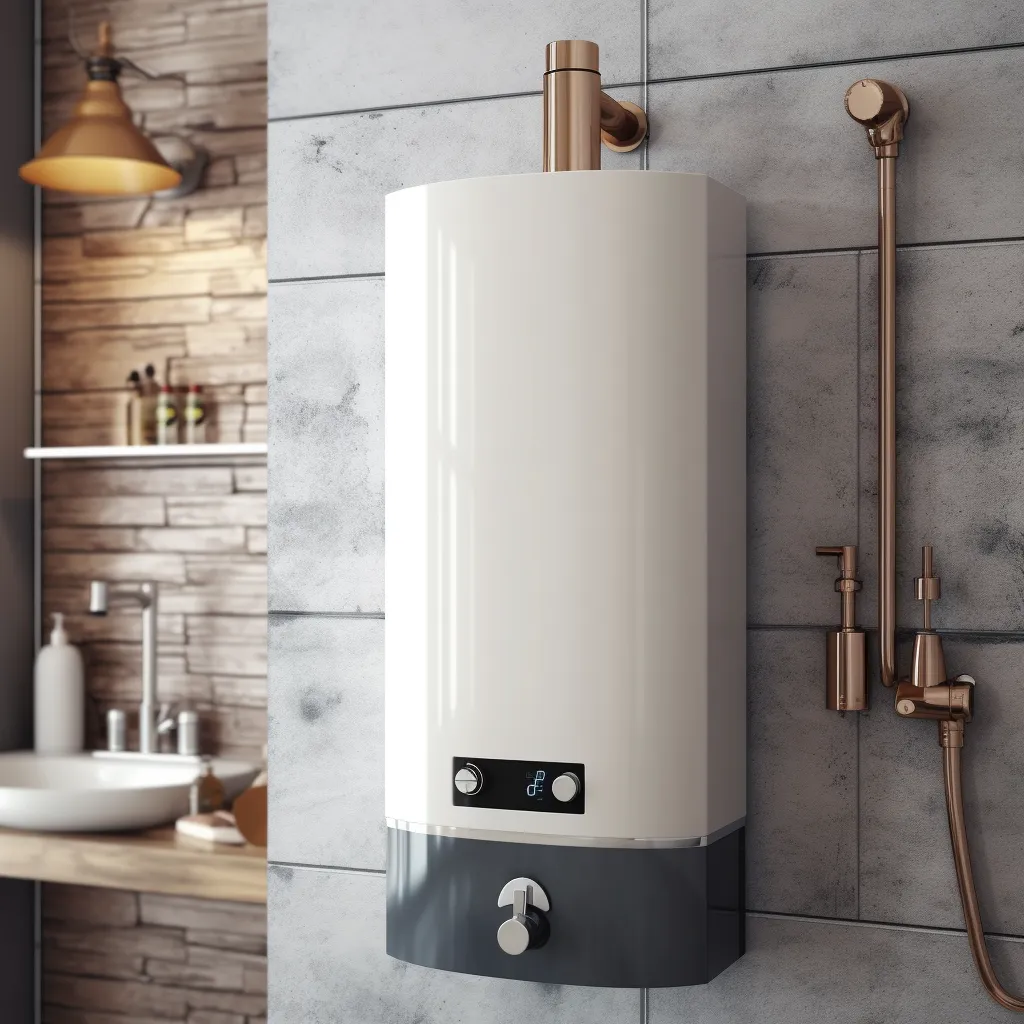

Gas vs electric water heaters
Wondering whether to choose gas or electric for your home's water heater? Here's what you need to know. Gas models are faster and cheaper to operate, but require maintenance and a gas line. Electric units are easier to install and maintain but can cost more to run and heat water more slowly. It all comes down to your preferences and needs – read on to make the right choice for you.
How to decide if a tankless or a tank water heater
is right for you
There are several factors to consider before deciding if a tankless or tank water heater is right for you:
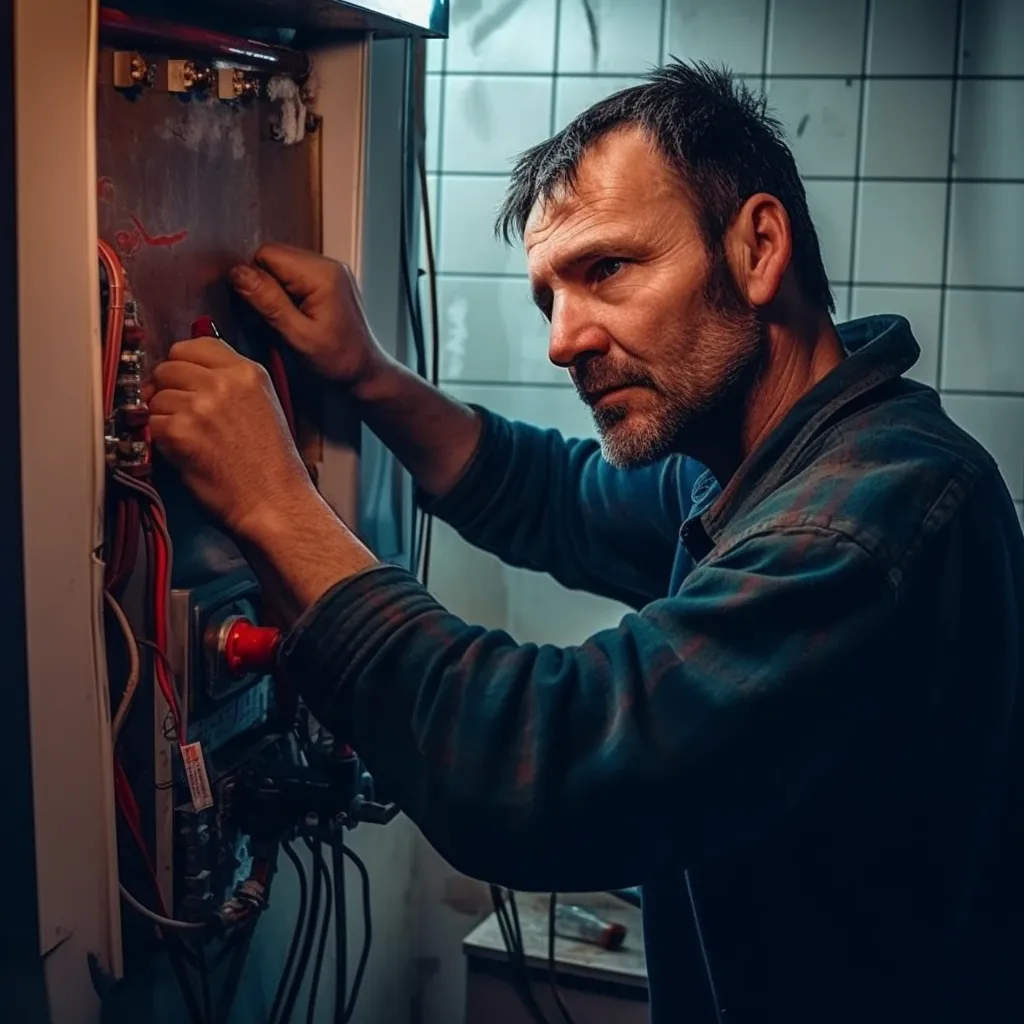
When it comes to investing in a water heater, be mindful of your budget. Tankless options may come with a higher upfront cost, so make sure to factor in installation and additional expenses.
Consider your usage requirements - for constant access to hot water, a tankless option may be the best fit, while a tank heater may suffice for low usage.
To save on energy costs, compare the energy efficiency of both tankless and tank heaters when making your decision.
Climate plays a role too - tankless heaters perform well in extreme temperatures, while tanks are best for milder climates.
If space is a concern, opt for a tankless heater that requires less room than a traditional tank.
Don't sacrifice comfort and convenience - do your research to make the best choice for your needs.

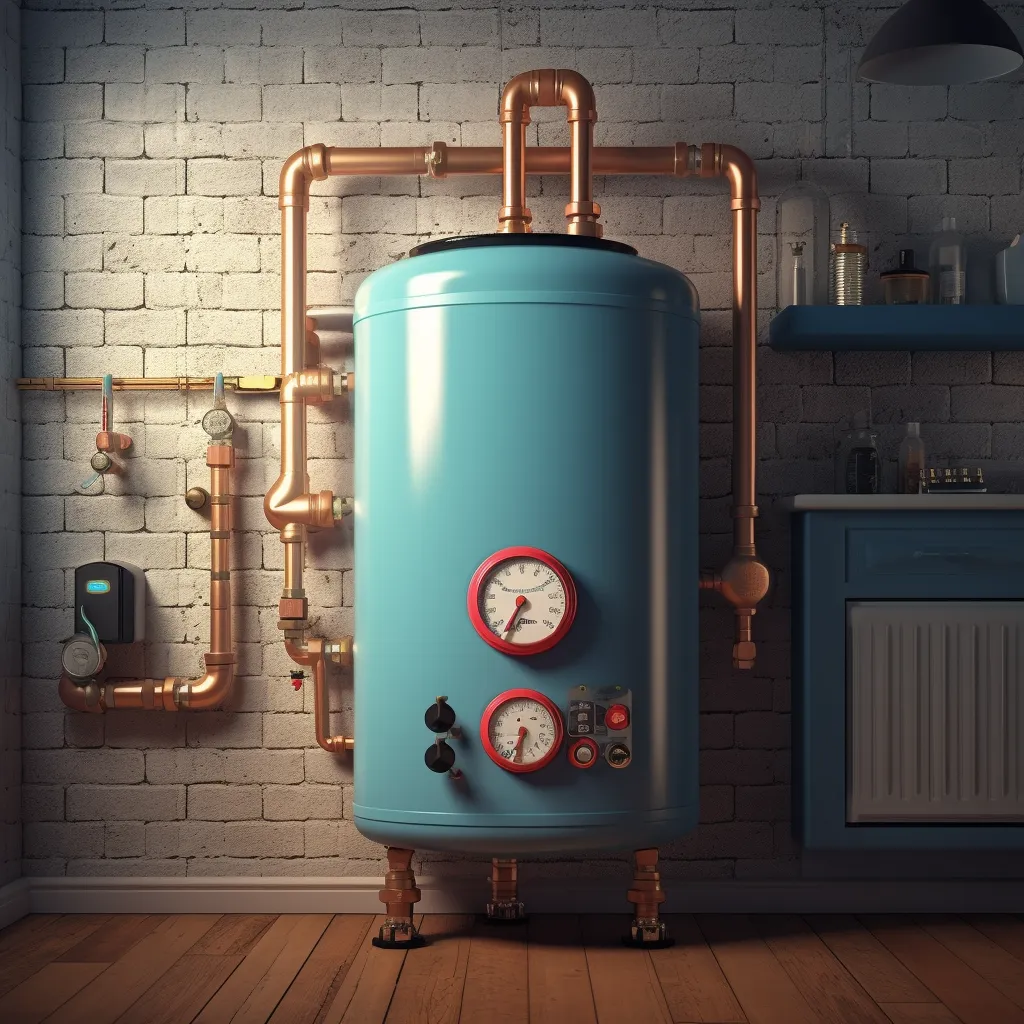
Is it important to hire a licensed professional to install a new water heater?
Ensure a safe and hassle-free installation of your water heater by hiring a licensed professional. They'll guide you in selecting the appropriate type and size, ensuring your compliance with building codes. Don't risk potential hazards - invest in the peace of mind that comes with expert installation.
I

Researching tankless vs tank water heaters
is important
Choosing the right water heater for your home is no easy feat. You'll have to decide between a tank or a tankless option, based on your specific needs, budget, and installation requirements. Make sure you weigh these factors carefully before settling on a conclusion. A new water heater can save you heaps on energy bills and provide hot water on demand. But first, research your options and compare their energy efficiency ratings. Don't rush into the decision. Take your time to make the right choice. Good luck!

Ready to Solve Your Plumbing Needs?
For reliable, expert plumbing services tailored to the needs of Lake Worth and its neighboring cities, look no further than D&S Plumbing Inc. We’re here for you 24/7, ensuring that your plumbing is always in top condition.
Call us today to schedule your service!
Business Hours: Monday - Sunday, 24 Hours
Phone Number: (561) 823-2535
Location: Central Lake Worth, FL, serving all surrounding areas.
Trust your local experts at D&S Plumbing Inc. for professional, timely, and efficient plumbing solutions.
GET IN FULL TOUCH
PHONE: (561) 823-2535
EMAIL:
david@waterheaterlakeworth.com
D&S Plumbing Inc
Lake Worth, FL 33462
